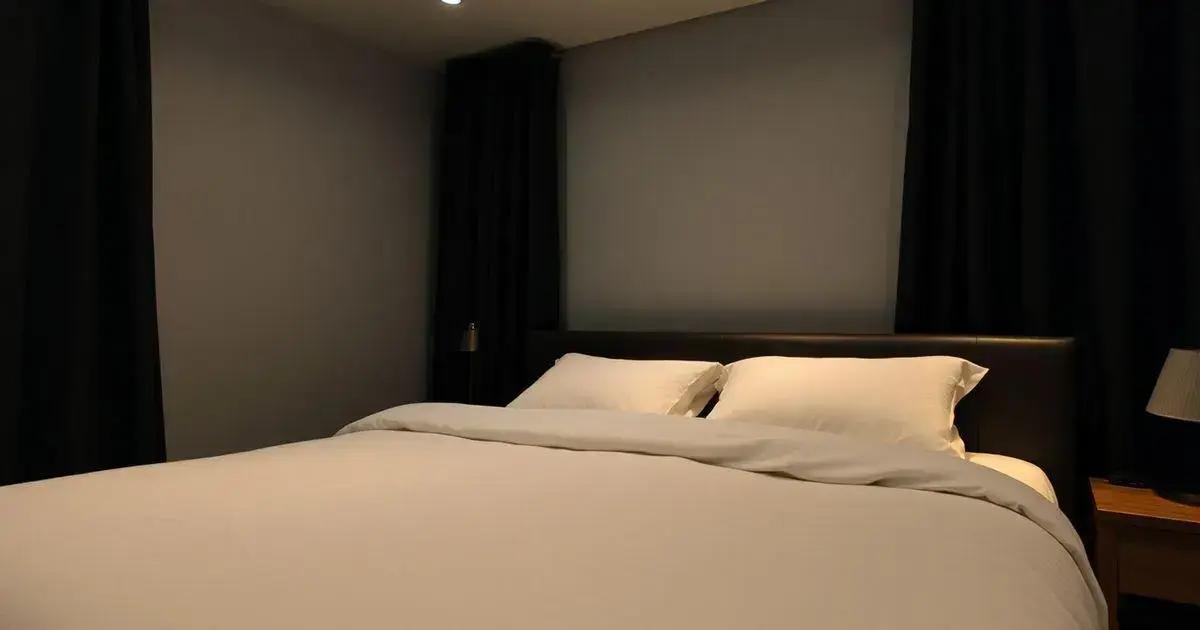Establishing a consistent bedtime routine is essential for better sleep quality. Incorporate calming activities, limit screen time, and create a relaxing sleep environment to enhance your nighttime habits and improve overall well-being.
Struggling to get a good night’s sleep? Developing a consistent bedtime routine can be your solution. Establishing a nightly ritual not only helps signal your body that it’s time to wind down but also improves sleep quality over time. In this article, we’ll dive into the reasons why a consistent bedtime routine is crucial, share tips on how to establish one, explore the impact of technology on your sleep, and discuss how to create a calming environment for rest.
Understanding the Importance of a Bedtime Routine

Understanding the importance of a bedtime routine is crucial for both your mental and physical health. A consistent routine signals to your body that it’s time to prepare for sleep. It can greatly improve the quality of your rest and elevate your overall well-being.
Many people underestimate the role that a bedtime routine plays in achieving quality sleep. It can reduce stress and anxiety levels, which are often significant barriers to falling asleep. When you engage in regular calming activities before bed, your mind learns to associate those activities with sleep.
Moreover, a bedtime routine can also help regulate your body’s internal clock, known as the circadian rhythm. When you go to bed and wake up at the same time every day, your body adapts to this schedule, making it easier to fall asleep and wake up feeling refreshed.
Benefits of a Bedtime Routine
A bedtime routine can also help enhance your productivity during the day. Good sleep boosts memory, focus, and overall cognitive function. Consistency is key; by establishing a nightly ritual, you give your body the best chance to recharge and organize thoughts.
Common Activities in a Bedtime Routine
Activities that are often included in bedtime routines are reading a book, taking a warm bath, practicing meditation, or stretching. These activities promote relaxation, making it easier to transition to sleep.
In addition to physical benefits, sleep is also essential for emotional regulation. A well-rested mind is better equipped to handle daily stressors. Thus, understanding the importance of a bedtime routine becomes vital for both mental clarity and emotional peace.
Tips for Establishing a Consistent Routine

Establishing a consistent bedtime routine is essential for improving sleep quality. Here are some effective tips to help you create and stick to a routine.
1. Set a Fixed Bedtime
Choose a specific time to go to bed each night. This reinforces your body’s internal clock, making it easier to fall asleep and wake up feeling rested.
2. Create a Pre-Sleep Ritual
Engage in calming activities before bedtime. Activities like reading a book, practicing light stretches, or meditating can prepare your mind and body for sleep, enhancing relaxation.
3. Limit Screen Time
Avoid screens from phones, tablets, and computers at least 30 minutes before bed. The blue light emitted by these devices can disrupt your sleep cycle and make it harder to fall asleep.
4. Maintain a Sleep-Friendly Environment
Your bedroom should be dark, quiet, and cool. Consider using blackout curtains, earplugs, or a white noise machine if noise or light disrupts your sleep.
Sticking to your routine every night creates a habit. Be patient if it takes time for your body to adjust. With consistency, you can reap the benefits of a more restful night’s sleep.
How Technology Affects Sleep Patterns

Technology plays a significant role in influencing our sleep patterns. With the rise of smartphones, tablets, and computers, our nighttime routines have changed dramatically.
One major issue is the use of blue light, which is emitted by screens. Exposure to blue light can trick our brains into thinking it is still daytime. This interferes with melatonin production, the hormone responsible for regulating sleep. As a result, falling asleep can become more difficult.
In addition, the constant notifications from our devices can create a sense of urgency that keeps us awake. Whether it’s emails, social media alerts, or messages, the urge to check your phone can disrupt your ability to unwind.
Apps and Wearable Technology
Many people rely on apps and wearable technology to track their sleep. These tools can provide useful insights into sleeping patterns. However, being overly reliant on these devices can lead to anxiety about getting enough sleep.
While technology can offer some benefits, it is essential to set boundaries. Establish a time to disconnect from devices at least 30 minutes before bed. This can help create a more relaxing environment, encouraging better sleep.
Overall, being mindful of how technology affects sleep is critical. Taking simple steps to limit exposure to screens can lead to more restful nights and improved overall health.
Creating a Relaxing Sleep Environment

Creating a relaxing sleep environment is vital for improving sleep quality. Your bedroom should be a haven for rest and tranquility. Here are some tips for designing a better sleep space.
Control the Light
Light can greatly affect your ability to fall asleep. Use blackout curtains to make your room dark. You can also use eye masks if you prefer sleeping without curtains. Dark environments signal your body that it is time to rest.
Keep the Temperature Comfortable
The ideal room temperature for sleep is generally between 60 to 67 degrees Fahrenheit. A cooler room helps lower your body temperature, which is necessary for sleep. Use fans or adjust your thermostat accordingly.
Minimize Noise
Noise can be another barrier to a restful night. Try to keep your bedroom as quiet as possible. Consider using white noise machines or earplugs to block out disruptive sounds. Soft background music can also help some people relax before sleep.
Choose Comfortable Bedding
Your mattress and pillows play a significant role in your sleep quality. Choose a mattress that suits your comfort preferences, whether it’s soft or firm. Additionally, invest in good-quality pillows that provide the right amount of support.
By making your bedroom a relaxing environment, you create the right conditions for sleep. This simplicity can make a big difference in how easily you fall asleep and stay rested through the night.
In Summary: Achieving Better Sleep with a Consistent Routine
Developing a consistent bedtime routine is key to improving your sleep quality. By understanding the importance of your nightly habits, you can effectively set the stage for restful sleep.
Using tips to establish a routine, along with awareness of how technology can impact your sleep patterns, will help you make informed choices for your health. Creating a relaxing sleep environment optimizes your space, making it conducive to better rest.
Implement these strategies to enhance your sleep routine and experience the many benefits that come from a good night’s sleep.
FAQ – Frequently Asked Questions about Developing a Consistent Bedtime Routine
Why is a consistent bedtime routine important?
A consistent bedtime routine helps regulate your body’s internal clock, reduces stress, and improves overall sleep quality.
What activities should I include in my bedtime routine?
Consider including calming activities such as reading, meditation, light stretching, or taking a warm bath to prepare your body for sleep.
How does technology affect my sleep patterns?
Exposure to blue light from screens can interfere with melatonin production, making it harder to fall asleep. Limiting screen time before bed is essential.
What is the ideal bedroom environment for sleep?
A sleep-friendly environment should be dark, quiet, and cool, with comfortable bedding and minimal distractions to promote relaxation.
How can I limit noise in my bedroom?
Consider using white noise machines, earplugs, or soft background music to create a quieter environment that aids in falling asleep.
How long does it take to establish a bedtime routine?
Establishing a bedtime routine can take a few weeks. Being consistent and patient helps your body adapt to the new schedule.













